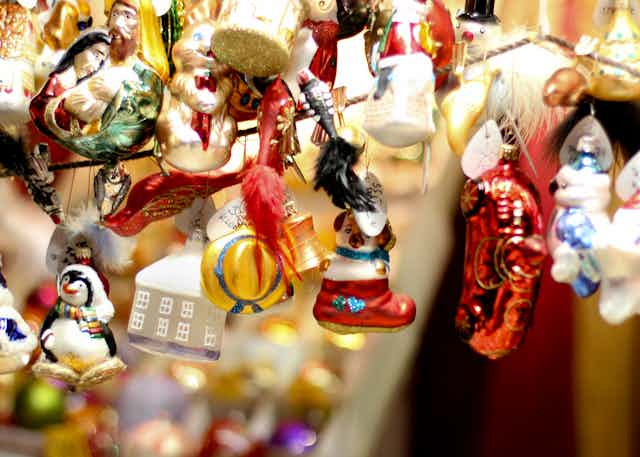At Christmas time, vacant shop spaces suddenly fill with new vendors selling decorations, small toys, gifts and calendars for the following year. Christmas markets seem to materialise out of thin air, and even online retailers set up shop on the high street. By the new year, these will all vanish without a trace. Yet for businesses, the pop-up store phenomenon is more than just a phase.
Pop-up retailing is a simple concept – it’s a retail store that exists for a limited period, measured in weeks, days, sometimes mere hours. They can take any form, from shops, bars and restaurants to cinemas and galleries. And they’re often used as part of strategies to promote brands and launch new products.
The origins of pop-up stores can be traced back to the periodic markets of the Middle Ages, and the salesmen who travelled from place to place, selling their wares. Indeed, since the first German Christmas markets appeared in the 14th century, sellers have used pop-up stores to meet seasonal demands, in cases where having a permanent premises may not make financial sense.
A new tradition
The main attraction of pop-up stores is their flexibility, which is become increasingly important in the rapidly changing world of retail. Businesses are under mounting pressure to evolve, to keep pace with changing customer expectations and behaviour.
As established high-street vendors are overtaken by online-only retailers in terms of market value, many find themselves with excess store space: one estimate says there are 50,000 surplus stores accross the UK.
These spaces present opportunities for pop-up shops, where different retailers can appear unexpectedly, create a buzz and disappear before people have a chance to get bored.
Maximum flexibility
The pop-up enables business to be more flexible in terms of location, financing and strategy. Being able to set up in different places allows retailers to take advantage of the growing amounts of vacant space in many shopping malls and town centres.
Short-term use of this space can benefit property owners by bringing in some rent, while providing opportunities for retailers – especially new business owners seeking to test out their business models.
Pop-up stores also allow retailers to go where their customers are; for example, by capitalising on gatherings of potential customers at events and festivals. Retailers can become “nomadic”, setting up stall in specially-designed marquees, repurposed shipping containers, and even inside other shops.

The financial flexibility of pop-up stores mean that they can be a low-cost alternative for start-ups which want to test a business concept, without the commitment or expense of leasing a permanent premises. The high cost of commercial rent in major cities has also encouraged the emergence of the so-called “shop share”. Here, small retailers can rent a rail, table, shelf or stand in a more established shop.
Such initiatives have encouraged greater collaboration among retailers, and helped small and independent business to boost their brand. Successful business concepts can then develop from pop-up to stay-up. In this way, pop-up stores can offer strategic flexibility.
Online, in person
Well-established businesses can also benefit, using pop-up stores less as a means of driving sales, and more as a way to promote their brand, market new products, and connect face-to-face with the general public. This goes for online retailers too: eBay, for instance, established a pop-up shop in central London over Christmas, featuring their 200 best-selling items.
This gives online-only stores a chance to have more direct interaction with - and feedback from - consumers, as well as providing opportunities to link the brand to specific cultural, fashion or sporting events.
In the retail industry, the boundaries between pop-up and more traditional retailing are blurring. At Christmas time, retailers will take every opportunity to increase sales during this peak trading period – including through pop-up stores. While these snow-festooned stores may be gone come the new year, it seems that for retailers, the pop-up is for life – not just for Christmas.

